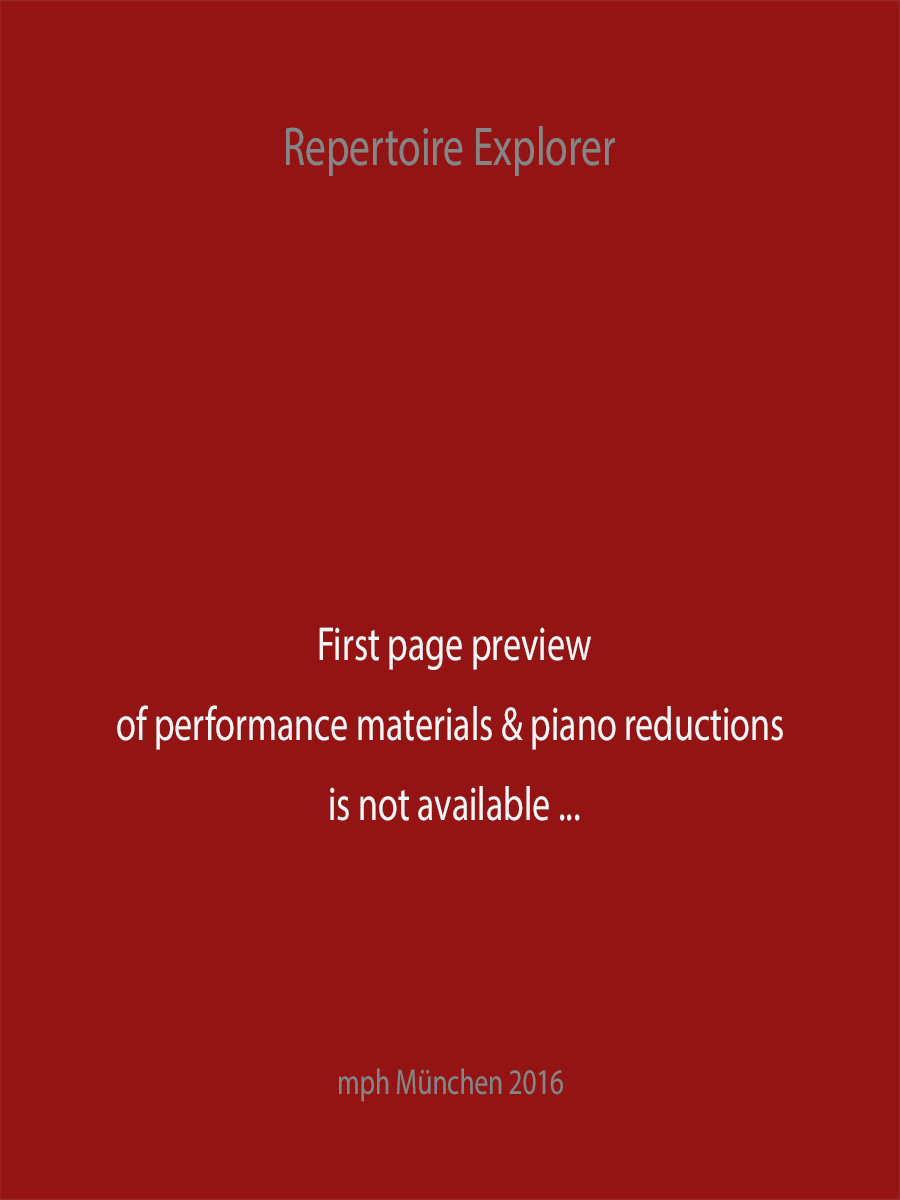String Quartet (1916) (Parts)
Delius, Frederick
18,00 €
Preface
Delius, Frederick
String Quartet (1916) (Parts)
(b. Bradford,29 January 1862 — d. Grez sur Loing, 10 June 1934)
Writing from France in late autumn 1916, Frederick Delius observes, in an embittered tone, that English people “have very little imagination & therefore are very hard to appeal to […] are an unemotional race & wallow only in the worst & the most obvious sentimentality”. But Delius still credited the English with the capacity to be changed definitively by events of singular significance, for shortly in the same letter he writes: “The war will have changed much – people will have suffered – many will have realized the rot – that has been going on – the hollowness of patriotism & jingoism & all the other isms – Politicians & diplomats & experts of all kinds have been making & continue to make such fools of themselves that the wiser folk will, perhaps, look for a little truth in art & the artists – & perhaps find some satisfaction in that rare event – A really artistic & emotional performance.” In this letter Delius also expresses the desire to travel to London for the premiere of what was originally a three-movement String Quartet, a desire that was unfulfilled due to the exigent conditions of war. Written while Delius was in Norway and completed by June, this piece was given by the London String Quartet on 17 November in the Aeolian Hall, an intimate venue that had started life in the 1870s as an art gallery associated with the English aesthetes and had from a decade before the First World War been developed by an American instrument-making firm into, among other things, a purpose-built concert setting. Ten years later, Delius’s wife Jelka wrote that the London String Quartet “never understood” his quartet – a truer understanding coming from a much greater interpreter of Delius’s music, Alexandre Barjansky (1885–1946), a Russian virtuoso cellist who had intimate involvement with English music. Delius promptly revised the quartet, in 1917, adding a Scherzo movement, and the premiere of the revision was given – again by the London String Quartet – on 1 February 1919, in a period of increasing fame for Delius (certainly by his own admission). It is the revised version that is presented in this edition.
Though, at times in his life, Delius exhibited little love for England, his music, in its esotericism and distinctively modal sound, retains an intrinsic Englishness. Of course, Delius’s work owes much to the earlier music of Debussy (and he therefore admired Ravel also), but he still preserved traditional values such as creative control in matters of fidelity to his own scores (a 1925 letter finds him strongly emphasising that, while he lived, alterations to his music were to be made only with his permission). This indicates a composer who was, potentially at least, uncomprehending of any contemporary music that was built on tangibly looser or more abstract foundations. For Delius, what mattered was emotion. This may embody some degree of contradiction, for in his music we seem to have to understand a man who wrote voluminous personal letters of an essentially conversational nature that removes the edge from themes of philosophical profundity that he touches on (even where these are mentioned). To take this view of Delius relates well to what Deryck Cooke calls the “peculiarly limited” style and expressive range of his music, which is confined “to a very personal harmonic basis, and to a slow or slowish tempo, to express a particular aspect of human feeling” (rather than the depths of feeling; c. f. Deryck Cooke, Vindications. Essays on Romantic Music, London, 1982, p. 120). Cooke has little hesitation in making the value judgement that the best of Delius’s output lies in the music composed between 1899 and 1917, and if this categorization is to be accepted, we must account for the String Quartet in terms of its being typical of Delius’s core musical characteristics, in addition to its individuality.
Read more / mehr lesen > HERE
Score Data
| Edition | Repertoire Explorer |
|---|---|
| Genre | Chamber Music |
| Size | 225 x 320 mm |
| Printing | Reprint |
| Specifics | Set of Parts |
